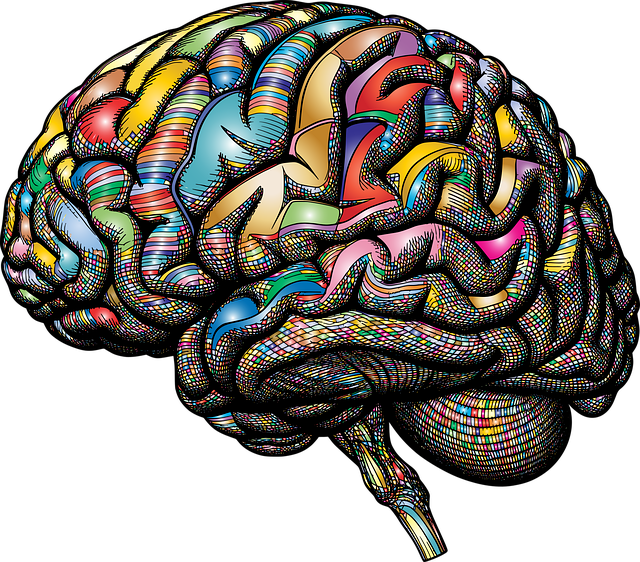Northglenn Grief Counseling Therapy prioritizes culturally sensitive care through emotional intelligence, bridging cultural gaps in healthcare delivery. Their Community Outreach Program and training initiatives equip providers with skills to understand diverse backgrounds, navigate complex emotions, and adapt communication strategies. This approach enhances patient outcomes, promotes trust, and ensures tailored support for Northglenn's diverse communities, making it a leading example of culturally responsive mental health care.
In today’s diverse healthcare landscape, cultural competency is no longer an option but a necessity. This comprehensive guide explores how Northglenn Grief Counseling Therapy (NGT) is revolutionizing patient care through cultural sensitivity training for healthcare providers. From understanding cultural nuances to identifying communication barriers and best practices for responsive care, NGT offers a roadmap to enhancing patient experiences. Discover how these initiatives measure success, ensuring equitable access to quality healthcare for all.
- Understanding Cultural Competency in Healthcare: A Northglenn Perspective
- The Role of Grief Counseling Therapy in Building Cultural Sensitivity
- Identifying and Overcoming Barriers to Effective Communication
- Best Practices for Providing Culturally Responsive Care
- Measuring Success: Evaluating the Impact of Training Programs
Understanding Cultural Competency in Healthcare: A Northglenn Perspective

In Northglenn, a vibrant community with a diverse population, healthcare providers recognize the importance of cultural competency in delivering exceptional patient care. This concept goes beyond basic language translation; it involves understanding and appreciating the unique cultural backgrounds, beliefs, and values of each individual who walks through their doors. The city’s commitment to cultural competency is evident in various initiatives, such as the successful Community Outreach Program Implementation, which bridges the gap between healthcare services and Northglenn’s diverse communities.
Emotional Intelligence plays a pivotal role in this context. Healthcare providers are encouraged to develop strong emotional connections with patients from different walks of life. By embracing Mind Over Matter Principles, therapists and caregivers can create safe spaces where individuals feel heard, respected, and understood. This holistic approach to healthcare ensures that Northglenn Grief Counseling Therapy becomes more than just a service; it becomes a supportive environment where cultural boundaries melt away, fostering healing and recovery for all.
The Role of Grief Counseling Therapy in Building Cultural Sensitivity

Incorporating Northglenn Grief Counseling Therapy into healthcare provider training is a powerful step towards fostering better cultural sensitivity. Grief counseling specifically equips professionals with the skills to navigate complex emotional landscapes, which are often deeply influenced by cultural backgrounds and personal experiences. Through this therapy, healthcare providers learn to recognize and respect diverse mourning practices, spiritual beliefs, and emotional expressions across various cultures.
This training transcends mere knowledge of different customs; it emphasizes the development of social skills that promote empathetic communication. By understanding the role of grief in shaping individual identities and community dynamics, mental health professionals can offer more culturally sensitive care. This approach not only enhances the quality of services provided but also promotes better patient outcomes, ensuring that everyone receives support tailored to their unique needs and backgrounds, including those in Northglenn communities.
Identifying and Overcoming Barriers to Effective Communication

Effective communication is a cornerstone of quality healthcare, yet cultural barriers can create significant challenges for providers. These obstacles manifest in various forms, from language differences to differing communication styles and values. For instance, in diverse communities like Northglenn, where Grief Counseling Therapy services are in demand, understanding cultural nuances is crucial. Patients may hold beliefs or practices that influence their expectations of healthcare, potentially hindering open dialogue if not addressed with sensitivity.
Training programs focused on cultural competency, including Mental Wellness Coaching and Trauma Support Services, play a vital role in equipping healthcare providers to overcome these barriers. By participating in such initiatives, professionals can develop skills to navigate sensitive topics, adapt communication strategies, and foster trust. This is particularly important when engaging communities that may be hesitant to seek mental health services due to cultural or historical trauma. Moreover, Mental Health Policy Analysis and Advocacy efforts reinforce the importance of culturally competent care by shaping policies that support diverse populations’ access to and satisfaction with healthcare services.
Best Practices for Providing Culturally Responsive Care

In providing culturally responsive care, healthcare providers must adopt best practices that foster understanding and respect for diverse cultural backgrounds. Northglenn Grief Counseling Therapy emphasizes the importance of emotional intelligence and empathy building strategies as foundational elements. By developing strong emotional regulation skills, practitioners can navigate sensitive conversations with grace and cultivate a safe space for patients from all walks of life.
One effective approach is to actively listen without judgment, allowing patients to share their unique perspectives and experiences freely. This involves being fully present, maintaining eye contact, and using open-ended questions to encourage dialogue. Additionally, incorporating cultural nuances into therapeutic techniques can significantly enhance patient engagement and outcomes. Tailoring interventions to align with a patient’s cultural beliefs and values demonstrates respect and promotes trust in the healing process.
Measuring Success: Evaluating the Impact of Training Programs

Evaluating the success of cultural competency training is a crucial step in ensuring its effectiveness and long-lasting impact. Measuring the outcomes can be done through various methods, such as pre-and post-training assessments to track knowledge gain and attitude shifts among healthcare providers. These evaluations often include questionnaires designed to gauge participants’ understanding of diverse cultural perspectives, their confidence in providing care across different communities, and their ability to apply conflict resolution techniques when needed.
Additionally, the impact of training programs can be assessed by examining patient satisfaction rates, retention of cultural competency practices over time, and improvements in healthcare outcomes for underserved populations. For instance, Northglenn Grief Counseling Therapy has seen positive results after implementing comprehensive cultural competency training, leading to better-informed therapists who are more adept at handling diverse client needs. This includes enhanced public awareness campaigns development that target specific communities, fostering a deeper understanding of Mind Over Matter principles and their application in therapeutic settings.
Healthcare provider cultural competency training, as demonstrated by Northglenn’s approach using grief counseling therapy, plays a pivotal role in fostering inclusive care. By identifying and overcoming communication barriers and adopting best practices, healthcare professionals can significantly enhance patient experiences. Measuring the success of these programs is crucial to ensure their continuous improvement and widespread adoption. Integrating cultural sensitivity, as illustrated by the case studies presented, not only benefits individual patients but also contributes to a more equitable healthcare system overall.









